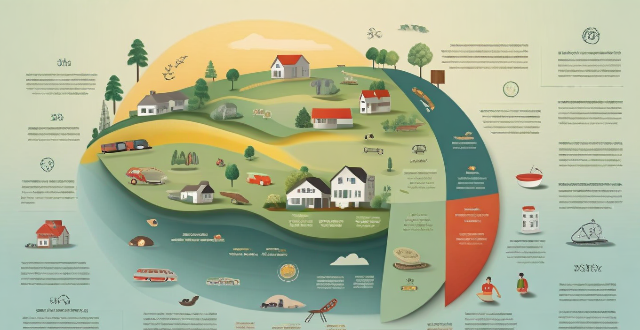Financial freedom, a state where one's passive and active income covers living expenses without regular time-for-money exchanges, is a goal many strive for. Key factors for achieving it include education, saving habits, smart investing, debt management, multiple income streams, avoiding lifestyle inflation, long-term planning, and the right mindset. Actionable steps include budgeting, automated savings, early investing, continuous learning, and networking with like-minded individuals. While not everyone may achieve financial freedom due to varying circumstances, it is attainable for those who are committed and strategic in their approach.

Can Anyone Achieve Financial Freedom?
Financial freedom is a state where an individual has enough income from passive, portfolio, and/or active sources to cover their living expenses without having to exchange their time for money on a regular basis. It's a goal many people strive for, but the question remains: can anyone achieve it?
Key Factors for Achieving Financial Freedom
1. Education and Knowledge
- Understanding basic financial concepts like budgeting, saving, investing, and compound interest is crucial.
- Stay informed about personal finance strategies and market trends.
2. Disciplined Saving Habits
- Start saving early and consistently.
- Create an emergency fund to avoid dipping into savings during unexpected events.
3. Smart Investing
- Invest in a diversified portfolio that aligns with your risk tolerance.
- Take advantage of employer-sponsored retirement plans and tax-advantaged accounts.
4. Debt Management
- Pay off high-interest debt first.
- Avoid unnecessary debt and live within your means.
5. Income Streams
- Develop multiple streams of income, including passive and active sources.
- Consider starting a side hustle or freelance work.
6. Lifestyle Inflation
- Avoid lifestyle inflation as your income grows; continue living frugally if possible.
- Recognize the difference between needs and wants.
7. Long-Term Planning
- Set realistic goals and create a detailed plan to achieve them.
- Regularly review and adjust your financial plan as circumstances change.
8. Mindset and Perseverance
- Cultivate a growth mindset and be open to learning new skills.
- Stay persistent and focused on your long-term financial goals.
Actionable Steps Towards Financial Freedom
- Budgeting: Create a monthly budget and stick to it. This will help you track your spending and identify areas where you can cut back.
- Automated Savings: Set up automatic transfers to a savings account each month. Out of sight, out of mind!
- Invest Early: The power of compound interest means that starting to invest even small amounts at a young age can lead to significant gains over time.
- Continuous Learning: Dedicate time to learn about personal finance through books, courses, podcasts, and blogs.
- Networking: Surround yourself with like-minded individuals who are also pursuing financial freedom. Their experiences can provide valuable insights and motivation.
In conclusion, while not everyone may achieve financial freedom due to varying circumstances and priorities, it is certainly attainable for those who are committed and strategic in their approach. By focusing on education, saving, investing wisely, managing debt, increasing income streams, avoiding lifestyle inflation, planning for the future, and maintaining the right mindset, anyone can move closer to achieving financial independence.